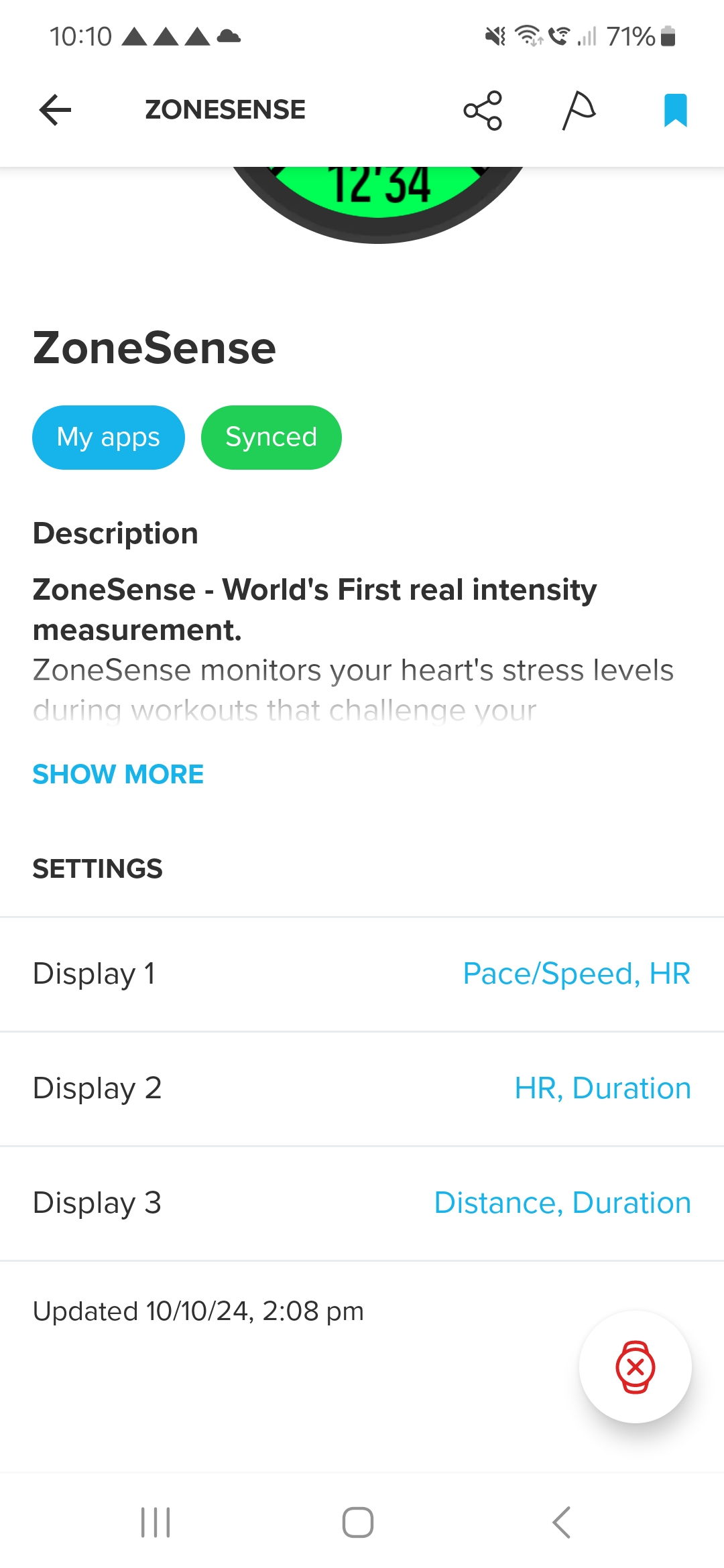Suunto ZoneSense
-
@althaea35 !
Unfortunately this is what I see in the app what am i doing wrong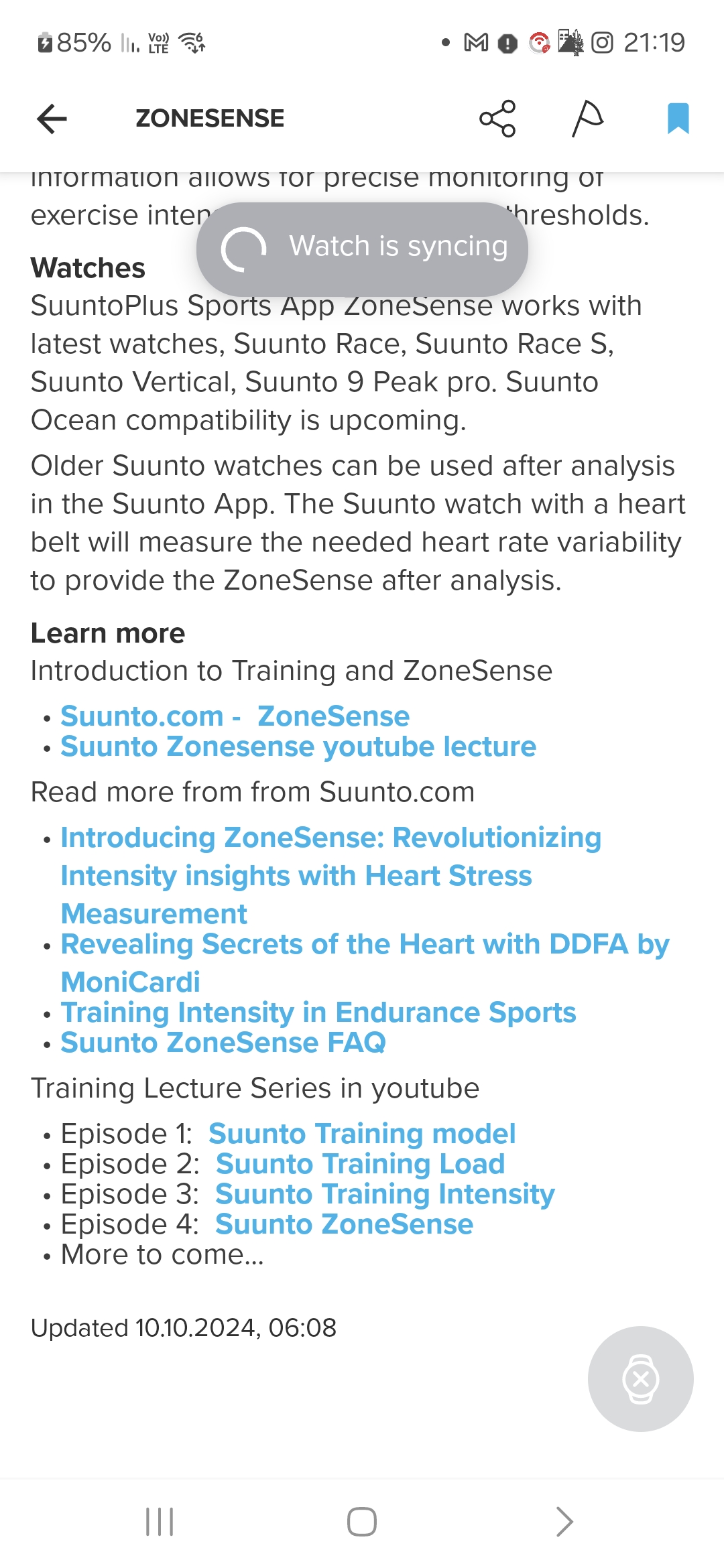
-
@Danny-poleg I get that screen as well when the watch isn’t connected/synced to the app. Once it’s connected, it works better.
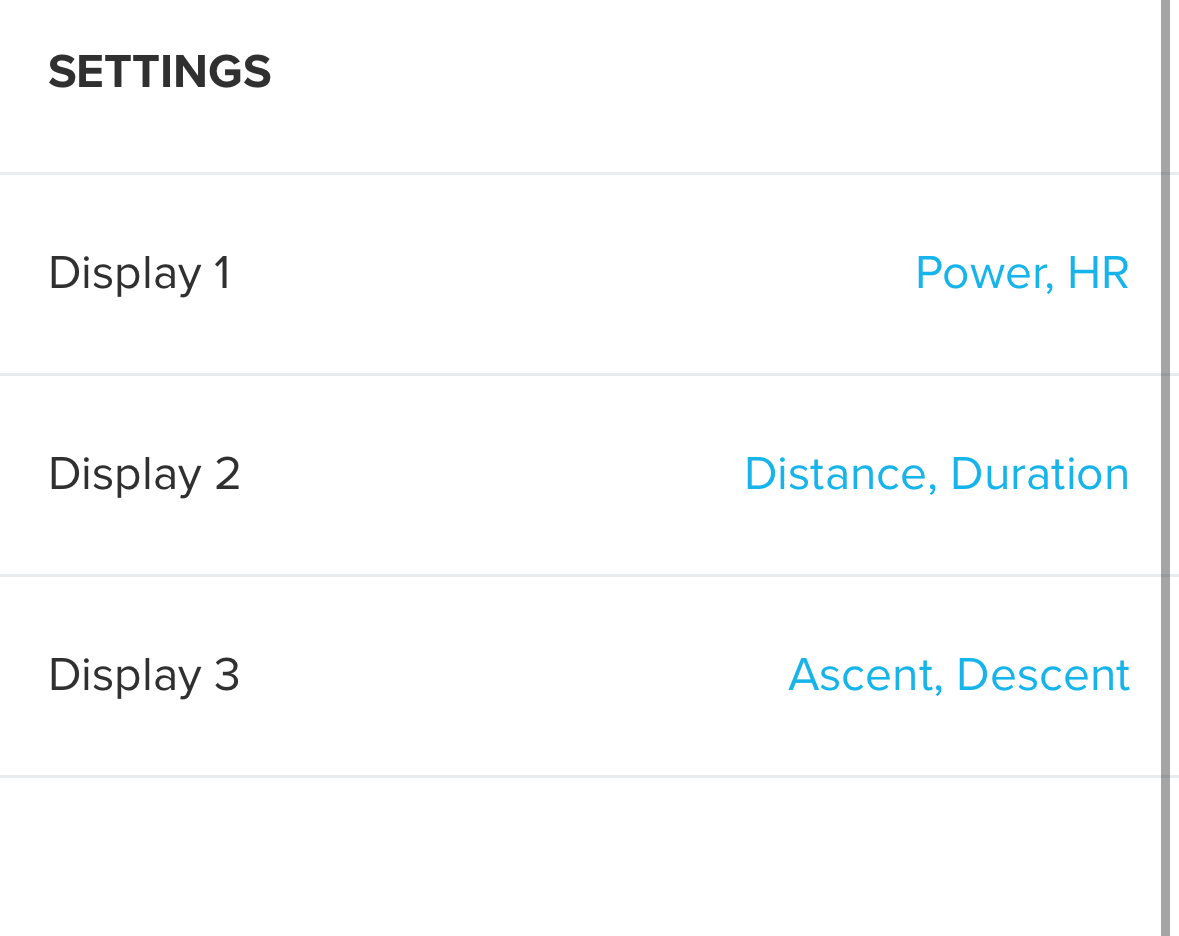
-
-
@daveathletic yes, you can indeed update Z3 and Z5 low end values using aerobic and anaerobic thresholds suggested by ZS.
Recently in a webinar Suunto clarified that ZS is not necessarily a replacement of lab testing for lactate and ventilation tests, but at the same time, it can be used as a good enough reference, as ZS data follows the lactate thresholds done in a lab very closely. It was stated by the creators of the metric behind ZoneSense that its thresholds are within +/- 5 bpm vs lab-based lactate test.
Having said that, it’s up to end-users to make best judgment use of the thresholds measured by ZoneSense, as you know, these will vary between days, even during same day. A ramp test on a track or flat course is usually a good way to get a relatively good idea of your thresholds from ZS.
If you don’t do ramp test, another way is do targeted sessions for each one, one aerobic session where you work below, at and above what you think your aerobic threshold might be and for enough time ( 3 to 5 mins) then do a separate session for anaerobic following same approach.
Hope this helps.
-
@althaea35
@iterumtenta
Thanks to all the members of the group
There is nothing like the good old way - deleting the app, resetting the phone, installing the app and the magic works -
@herlas thanks for your reply, that helps a lot and gives me a really good understanding. There is so much information out there according to HR zones that it can get quite challenging to find the right way to set them up without a lab test.
Anyway, I‘m gonna do a track test and will use Zonesense metrics to get them at least more or less accurate.
Thanks for your help, really appreciate. -
Nice article that sheds some light on the subject
In addition, Suunto’s YouTube website has additional explanatory videoshttps://the5krunner.com/2024/09/18/suunto-ddfa-dynamic-heart-rate-zones-training/#google_vignette
-
New lecture by suunto

-
@Danny-poleg thank you, that’s super helpful.
-
Walking on a 12 % incline, running on a 4 % incline on the treadmill (10 minutes warm up, then intervals with 3 minutes running and 2 minutes walking).
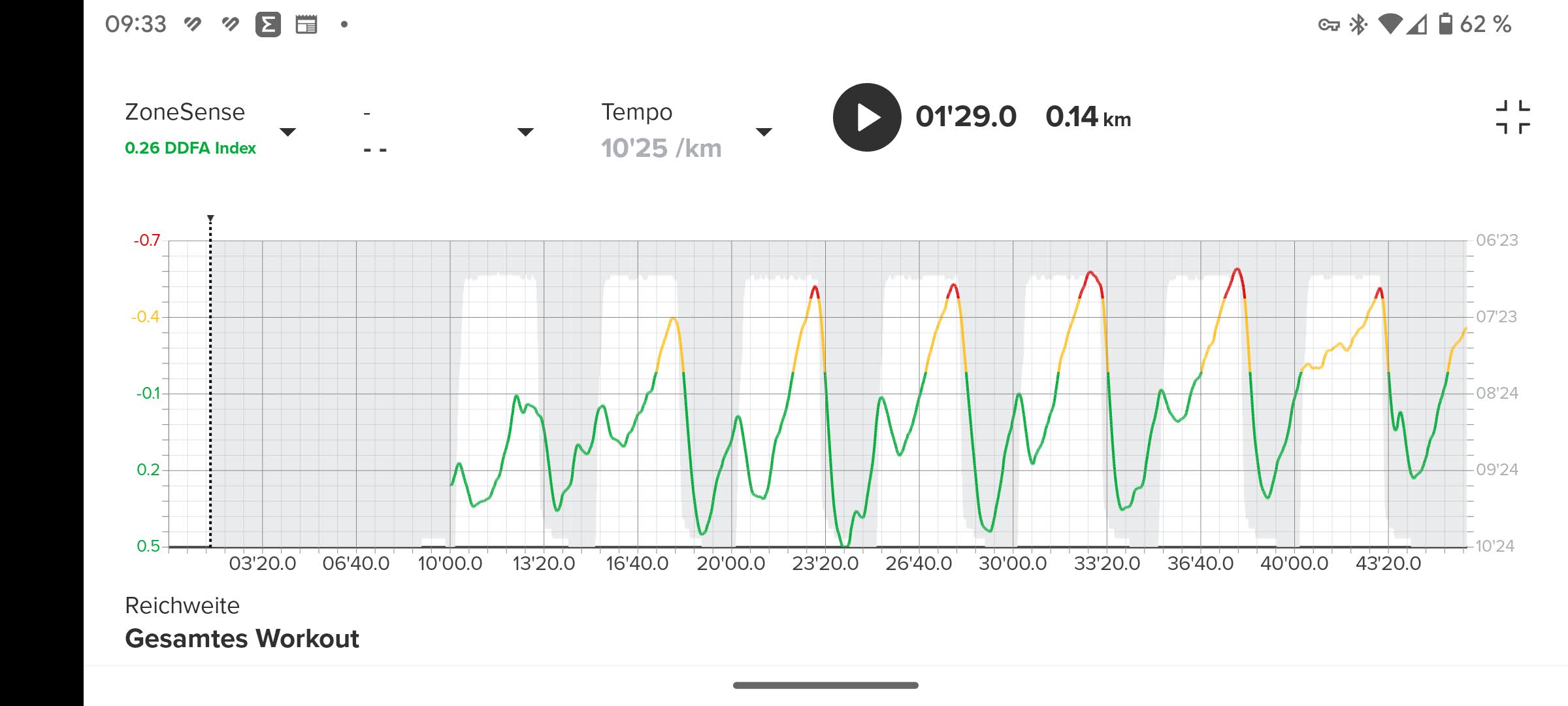
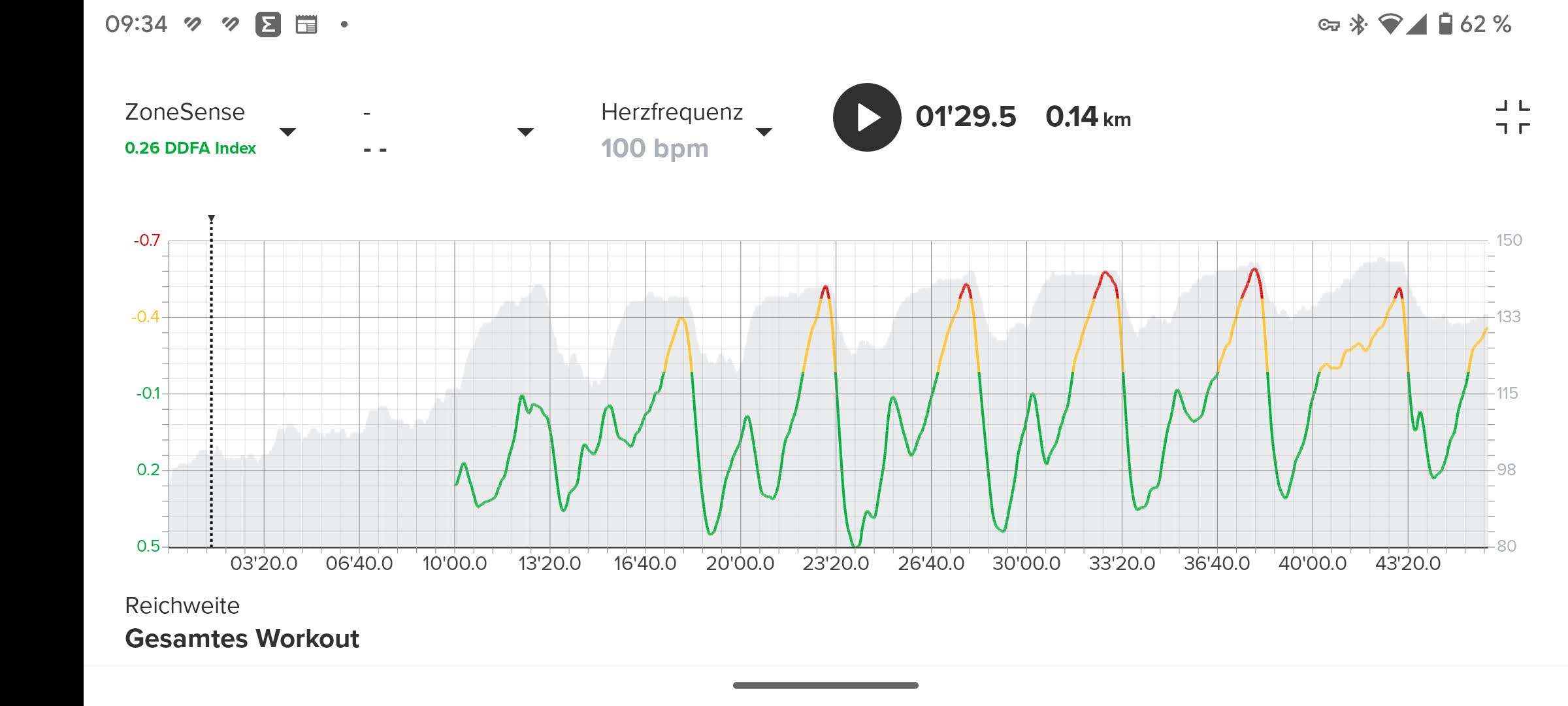
-
I ran a Cooper test.
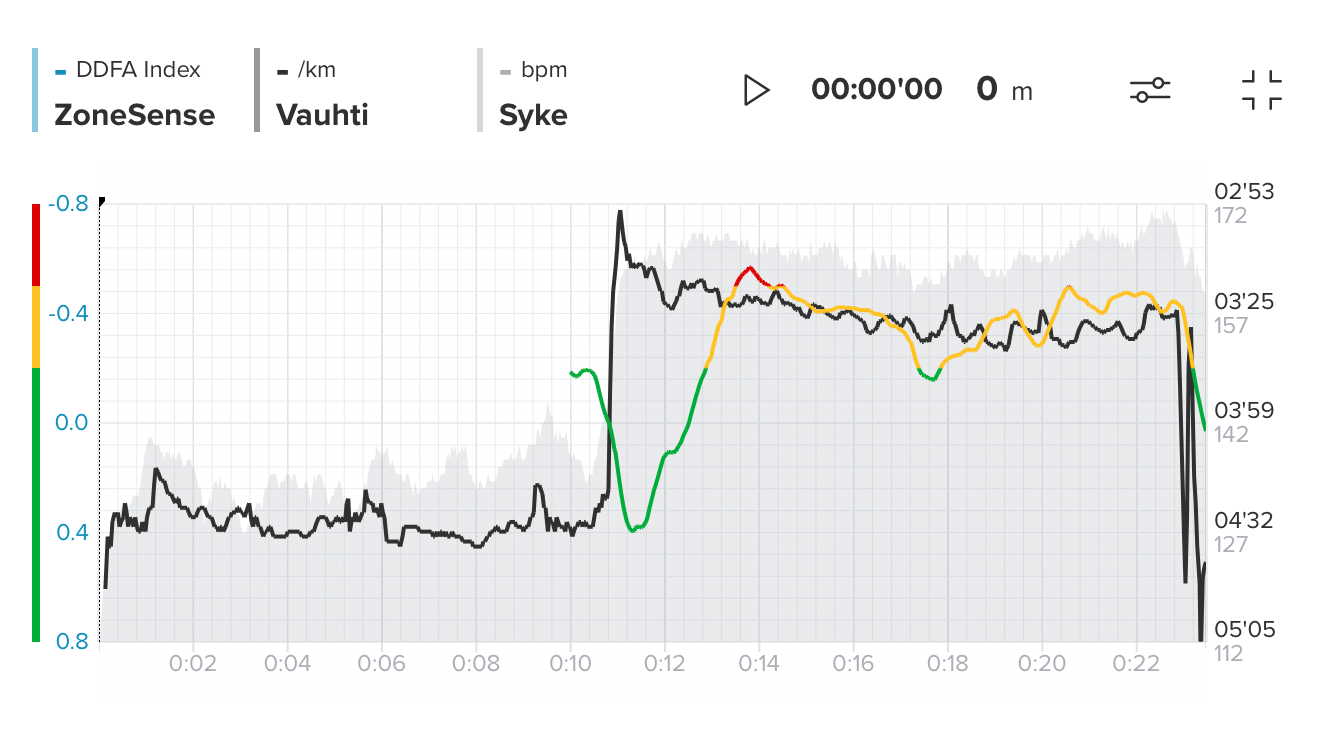
Could one interpret the graph that I wasn’t able to really give my best here since I didn’t really hit VO2 zone? Admittedly my taper for this wasn’t quite the way I would’ve liked so my legs weren’t the freshest.
P.S. App labeled this as “recovery.” Gee, how motivating!
 Is it the duration of under 30 mins that makes it so since 12 mins in Z5 apparently isn’t worth anything.
Is it the duration of under 30 mins that makes it so since 12 mins in Z5 apparently isn’t worth anything. -
@jussim I would say the graph looks pretty good relative to your effort (outside of that first spike)
-
Interesting read from Marco Altini’s blog:
https://marcoaltini.substack.com/p/q-and-a-what-are-your-current-thoughts
-
@Francesco-Pagano Oh, thanks so much for this article. I use Marco’s app but I haven’t noticed this opinion.
Well that could explain why in my personal case the ZoneSense is probably useless (or there could be possibly other reasons of course). I have a hard time trying to interpret results.
For me all the thresholds computed by the ZoneSense are way too low (sometimes even comically, like 30 beats under the lab measurement - measured with the H10 belt).
For example I spent 40 minutes around 165bpm and I get a LT 152 or something like that. That’s not possible I suppose:)
Even knowing that zones are shifting from day to day I am not sure how to work with it or what to take from it. There were a few times when it showed something that could make sense to me but… it’s not reliable for me to use it in a real time to guide my effort.
And I also wonder about the names of the zones… Why is the second zone called ANaerobic (without oxygen) and another zone called VO2max (like maximum oxygen uptake)? Wouldn’t it be better to call the zone moderate, or tempo, or threshold… I don’t know. It would make more sense to me
-
@Francesco-Pagano Curious to hear @Brad_Olwin’s thoughts on that article. For me, ZoneSense has been a game changer. I’m 50 years old, and it’s helped me a lot with RPE, controlling my training, and avoiding overtraining. I can say that I’m training more intelligently and have seen a real boost in my fitness.
-
@iterumtenta The article doesn’t say it doesn’t work. It just explains that it can’t work for everyone—like most things in sports physiology. Those static thresholds are likely based on some standard distribution, so it could work for the majority of users. However, for some individuals, it would need to be adjusted to better reflect their unique physiological characteristics.
-
@Zdeněk-Hruška Thanks for the precision! I’m pretty new to this world, and ZS been invaluable for me.
-
@iterumtenta Glad to read that you’re having great results with ZoneSense. So far I found it quite useful, too.
When it was launched I was just starting a base-building period within my running training. I chose to follow it blindly and see what it does. I had to adjust a little, making my easy runs even easier, and so far I have never reached a stressed, over-trained state despite of the high volume. Could I push a little bit more to increase my aerobic capacities? This I will never know.What the article points out is that for most individuals, DDFA is not a reliable enough indicator of metabolic thresholds, and that was written by someone who had previously sponsored those metrics to the point of building his own app for DFA analysis. This means that people like me will probably never get an estimate of LT1 and LT2 thresholds from ZoneSense (so far I got aerobic threshold - when it’s reported! - ranging from 129 to 149, really??)
As I said, I enjoyed using it for aerobic capacity training so far, though I would probably know myself how not to push too hard. When I start adding intensity training in two weeks, I will find out more. -
@Francesco-Pagano Just regarding the calculated thresholds - you should treat them like you would the trimp, epoc, vo2max etc for a run in that they are for that run. As the app says, if that run felt “normal” then the threshold suggestions can be used as an indication of your “normal” thresholds for setting HR zones but ZS is expected to fluctuate with stressors such as fatigue, illness, work/life stresses etc. on a daily basis.
-
Yesterday I had a strange issue with my zonesense: the timer of the 3 zones was regolarly running, but the earth rate indicator has been green for 2 hours without moving.
This was really annoying because it was difficult to find if I was in aerobic/anerobic/vo2max zone.
Anyone has experienced that before?

